The man once known as “Mad Max” isn’t very mad these days—in fact, he’s quite happy, especially on the course. “I think golf has settled me down,” says Vernon Maxwell, who admitted to playing “up to four times a week” during a phone interview. The guy who once ran into the stands in San Antonio to get in touch with a particularly rowdy fan now finds other ways to deal with stress. “[Golf], that’s my relaxation. It’s what I enjoy doing.”
From 1988 to 2001 Maxwell enjoyed playing basketball for 10 NBA teams while garnering a reputation for confrontation and, above all else, winning. Everywhere he played the team was made better by his presence, if not in the locker room then definitely on the court.
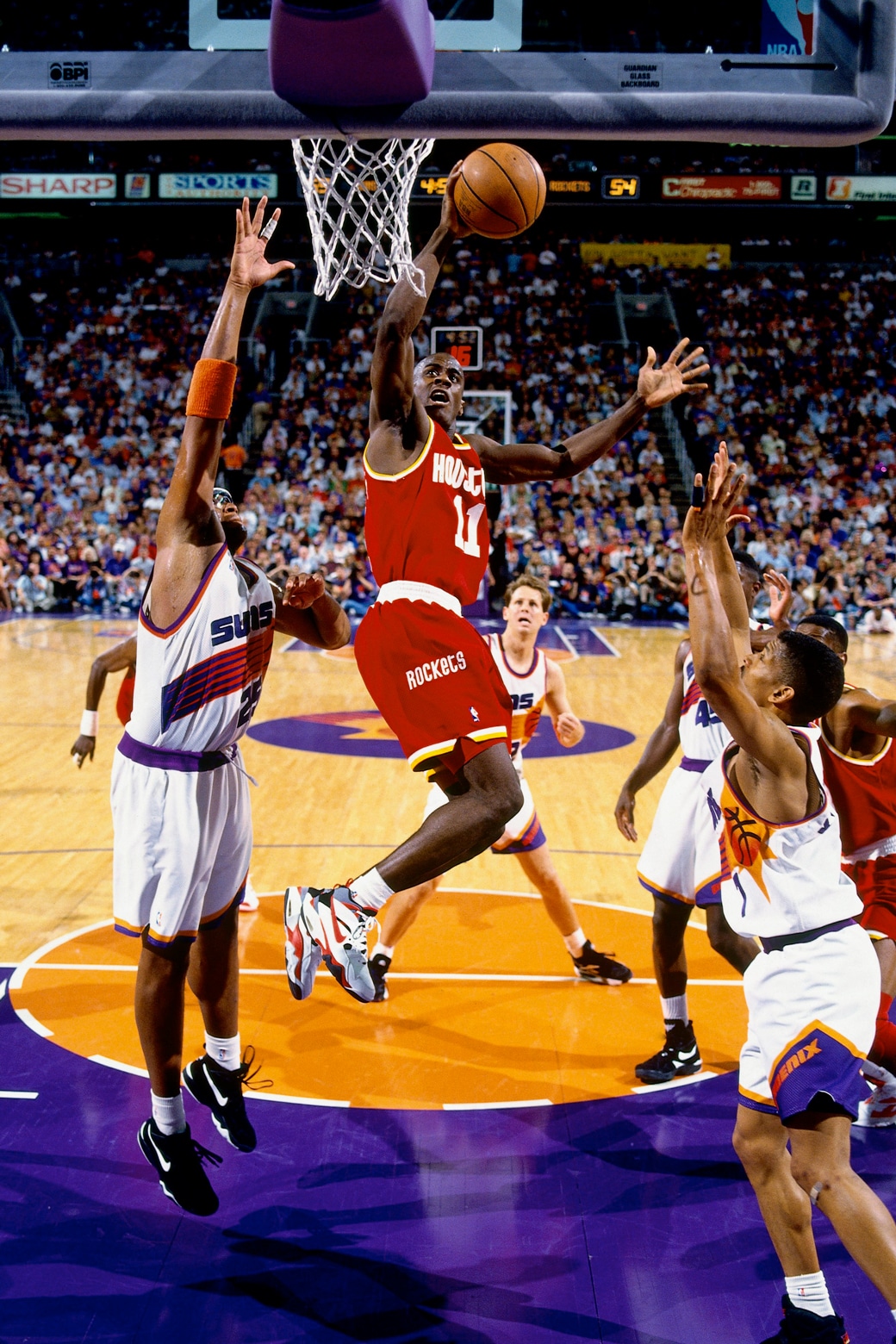
A Gainesville, FL, native, Maxwell was destined to play for legendary former NC State and then University of Florida coach Norm Sloan and the Gators. An all-state, All-American caliber recruit coming out of Buchholz High School, Maxwell had his choice of high-level programs but those schools would have had to be within driving distance to land the 6-4 guard. Even some of the game’s best collegiate coaches couldn’t get the versatile scorer away from his momma’s cooking.
“I probably made my decision when I got on my first ever flight to Raleigh [North Carolina],” Maxwell says. He had been en route to visiting the reigning NCAA champion NC State Wolfpack and their enigmatic head coach Jim Valvano. Valvano was only 37 years old when he led the Cinderella “Cardiac Pack” to the NCAA title in 1983 and even before that was regarded as one of the nation’s best recruiters. “The flight was probably an hour and a half, but it felt like forever,” Maxwell says.
Valvano and the Pack didn’t close the deal. NC State’s loss was Florida’s gain.
During his four years in Gainesville, Maxwell helped what was then just a mediocre program—having failed to ever make the NCAA Tournament—turn into a force to be reckoned with in the SEC. During his freshman and sophomore years, that trend of March-less basketball continued despite Maxwell averaging 13.3 points per game as a freshman and a team-high 19.6 during his sophomore stint.
The breakout season that brought Maxwell and the Gators into public view was 1986-87, his junior year, when the Gators made the Sweet 16. Maxwell’s team-leading 21.7 points per game, plus strong play from senior point guard Andrew Moten and the addition of the late Dwayne Schintzius, a McDonald’s All-American, all contributed to powering Florida to their first-ever Tournament appearance and a first round matchup with Valvano and NC State. The Pack didn’t stand a chance. The unheralded but higher seeded Gators (the Gators were a 6-seed, the Wolfpack an 11) won the game, 82-70, behind Maxwell’s 28 points.
Then-future NBA players Vinny Del Negro, Chucky Brown and Charles Shackleford couldn’t do anything to stop Maxwell on the biggest stage. “Vernon was our go-to guy,” says Moten, currently the head basketball coach at West Gadsden High School in his hometown of Quincy, FL. A four-year starting point guard at Florida who was one year ahead of Maxwell, Moten echoes what many former teammates say about Mad Max: “He was one of the best teammates you could have on a basketball court. You knew he had your back.”
The Gators moved on to blow out the No. 3 seed Purdue Boilermakers 85-66. Coached by Gene Keady, the 25-5 Boilermakers were the 1987 Big-10 champs and had lost just four games up to that point. The Sweet 16 would match the Gators up with eventual runner-up and second seeded Syracuse. The 87-81 loss still bothers Maxwell to this day—he believes his team was just as good or better than an Orangemen side loaded with NBA talents like Derrick Coleman, Rony Seikaly and Sherman Douglas. “We definitely underachieved,” Maxwell says. “We had a lot of characters on that team, but we were really good.”
His senior season would end with a loss in the second round to a Michigan team with eventual NBA players Glen Rice, Gary Grant, Loy Vaught, Terry Mills and Rumeal Robinson. Maxwell once again shined amongst the stars, finishing the game with 23 points and 10 assists.
It was a no-brainer that a team with a first-round selection in the 1988 NBA draft would pick the top off-guard in the SEC, the player most responsible for bringing big-time basketball to the University of Florida, right? Wrong. Maxwell was drafted 47th in the second round by the Nuggets, who immediately sent him to San Antonio, three spots ahead of current Golden State Warriors coach Steve Kerr and after the likes of Temple’s Tim Perry, Jeff Grayer, Derrick Chievous, Randolph Keys and Orlando Graham. A 6-8 power forward from Auburn University at Montgomery, an N.A.I.A. school, Graham was drafted by the Miami Heat with the 40th pick—even the home team wouldn’t take a chance on a player that admittedly had “kind of had a bad attitude.”
Moten agrees—“Vernon was definitely supposed to be a first-round pick,” he says. It’s been said that Maxwell probably would have been better off playing his college ball away from where he grew up, as his drop on the draft board supposedly had to do with minor scrapes with the law. “Sometimes people say one thing about a kid and the next thing you know the player starts slipping,” says Moten, himself an All-SEC First Team selection the year before who was taken in the fourth round of the ’87 draft by the New Jersey Nets.
Maxwell not only made the Spurs but started 36 games while averaging 11.7 points, 3.8 assists and a steal per game. He split time at shooting guard with Willie Anderson and Johnny Dawkins for a 21-win Spurs team under Larry Brown before he was traded to Houston during his second season. For the next five and half seasons, Maxwell was the starter for what would ultimately be some of the best and worst years of his career.
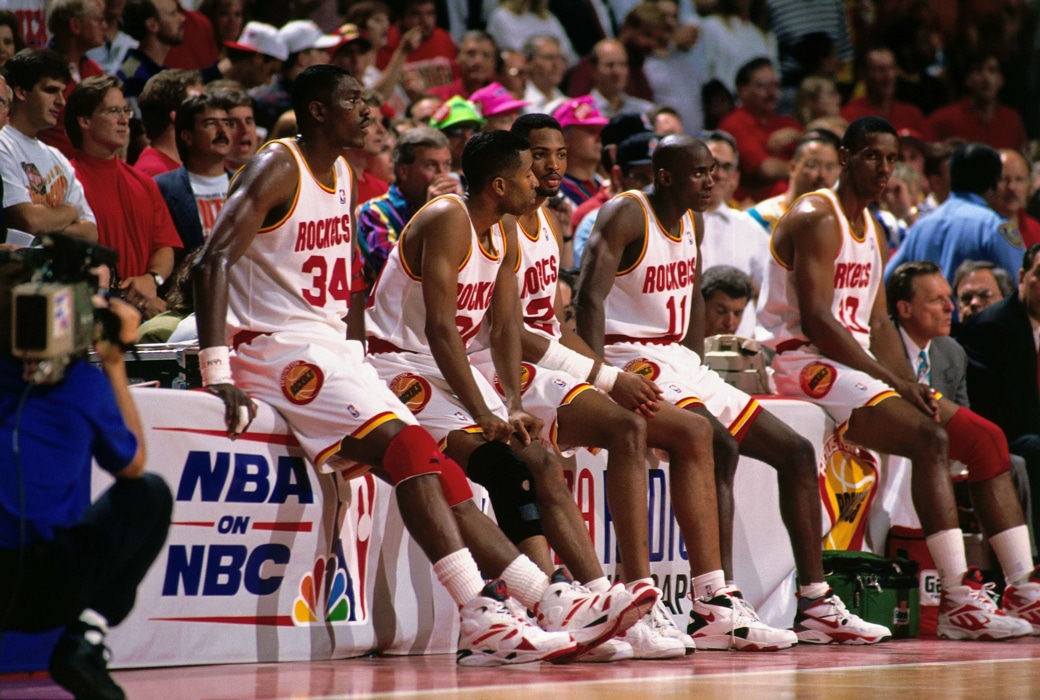
He peaked at 17.2 ppg during the ’91-92 season. Maxwell’s 51-point game in January of 1991 against Cleveland was a clear demonstration of his ability to dominate. He played on the famous “Clutch City” Rocket teams of ’93-94 and ’94-95, becoming close friends with NBA veteran guards Mario Ellie and Sam Cassell and winning a pair of championships in the process. “I knew how much it meant to the city, to the fans,” Maxwell says. “To bring the first professional championship to the city was big.”
“He was one of the fiercest competitors I have ever played with or against,” Ellie says.
“[Maxwell] was an ultra-competitor,” Cassell says. “Some of the other 2-guards in the League were taller or stronger, but he never backed down and he wasn’t afraid to mix it up with anybody.” As a rookie fresh out of Florida State in 1993, Cassell wasn’t sure what he was getting into as a first round pick joining a team with an already established backcourt in Maxwell and veteran point guard Kenny Smith. Maxwell, then a five-year veteran, could have given the rookie the cold shoulder, but he did the opposite. “My first year in the League he took me under his wing,” Cassell adds. “He gave me my toughness.”
For better or worse, toughness was Mad Max’s most visible quality. That toughness was on display for all to see when the Rockets were up against a potential sweep during the 1994 Western Conference semifinals, playing in Phoenix after blowing consecutive 20-point leads in Games 1 and 2. Maxwell’s 31 second-half points sealed a Game 3 win and helped lead to an eventual seven-game series win for the Rockets. In Game 7 of the ’94 Finals, Max’s 21 points—only Hakeem Olajuwon (25 points) and Knicks PG Derek Harper (23 points) scored more that night—and game clinching three- pointer over the outstretched arms of Knicks guard John Starks solidified his position as a Rockets legend.
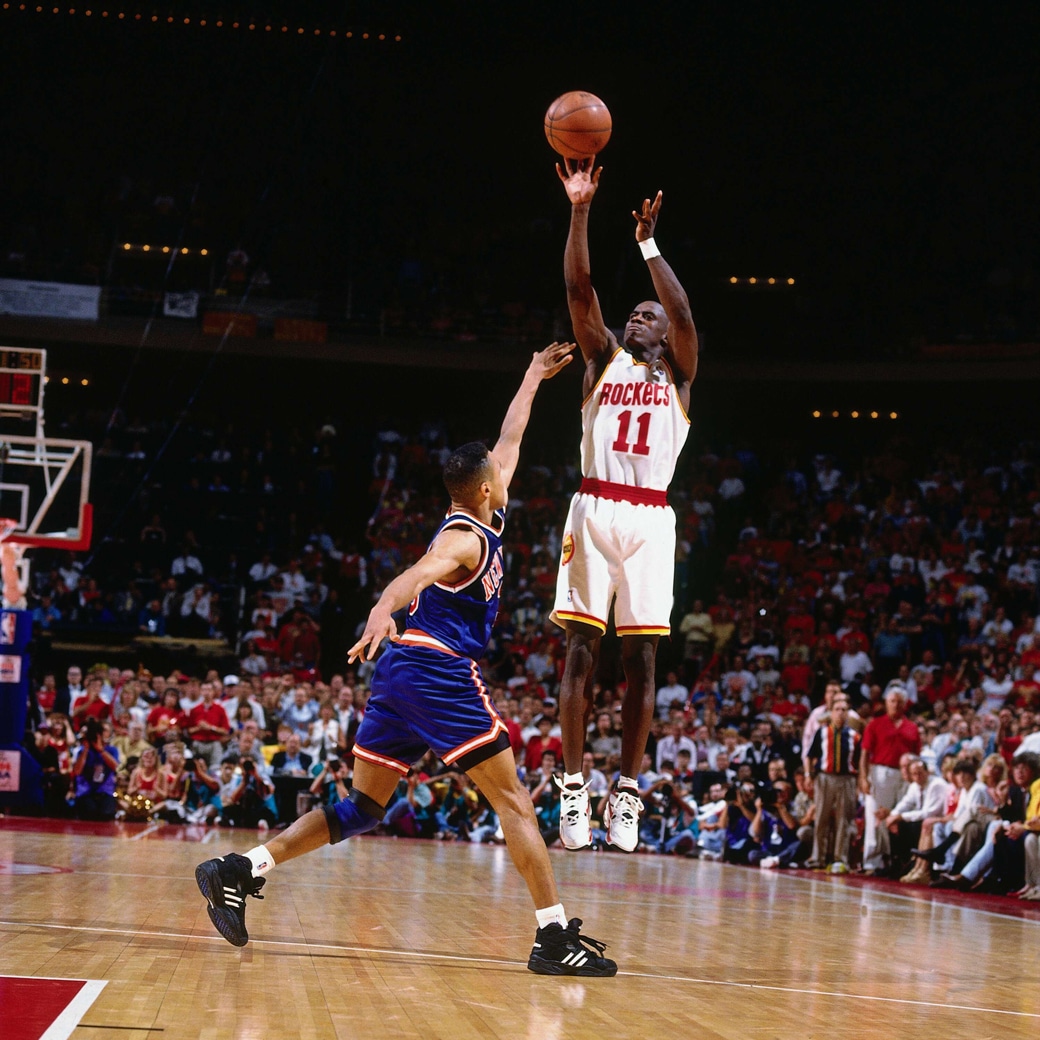
It appeared that things couldn’t get much better for Maxwell as the Rockets approached the 1995 playoffs, but that positivity didn’t last long. The Rockets had traded for Hall of Fame guard Clyde Drexler, which cut into Maxwell’s minutes. During the first game of that postseason (against Utah), Rockets coach Rudy Tomjanovich put Max in the game to attempt a game-winning or game-tying shot with 2.4 seconds remaining. Maxwell had played 16 minutes in the game and shot 1-7 from the field, scoring 3 points, and by his own admission didn’t feel respected by his coach. Maxwell missed the forced three-point attempt and famously stormed off the court. He never wore a Rocket uniform again.
“That was the worst decision of my life,” Maxwell says. “I’ve run it through my mind a thousand times. All I had to do was sit there. There was a whole lot of series left to play.”
“We were all hurt, especially Sam and I, because we were tight,” Ellie says. “We lost one of our soldiers. [He] was one of the best teammates I have ever had in my life.”
“[He] thought he was disrespected,” Cassell says. “I told him this wasn’t our series, but he just didn’t understand. We won the championship the year before with him as the starter and he just couldn’t understand the present situation with him coming off the bench.”
Maxwell, who was on a “leave of absence” as the Rockets won the 1995 NBA championship, would sign the following offseason with Philadelphia to play for John Lucas on what would ultimately be an 18-win team. The Rockets would go on to win 48 games that season before losing to Seattle in the second round of the playoffs. The old saying was true: You couldn’t live with him or without him. The Rockets would fail to return to the NBA Finals without Maxwell on the roster. He didn’t fare much better, moving on to San Antonio following his one season in the City of Brotherly Love—and from there he bounced around the NBA, playing for Orlando, Charlotte, Sacramento, Seattle, Philly (again) and Dallas before hanging up his jersey in 2001. He never again topped the scoring numbers he put up during his years in Houston in the early ’90s, though he did average double digits in four of the post-Houston seasons.
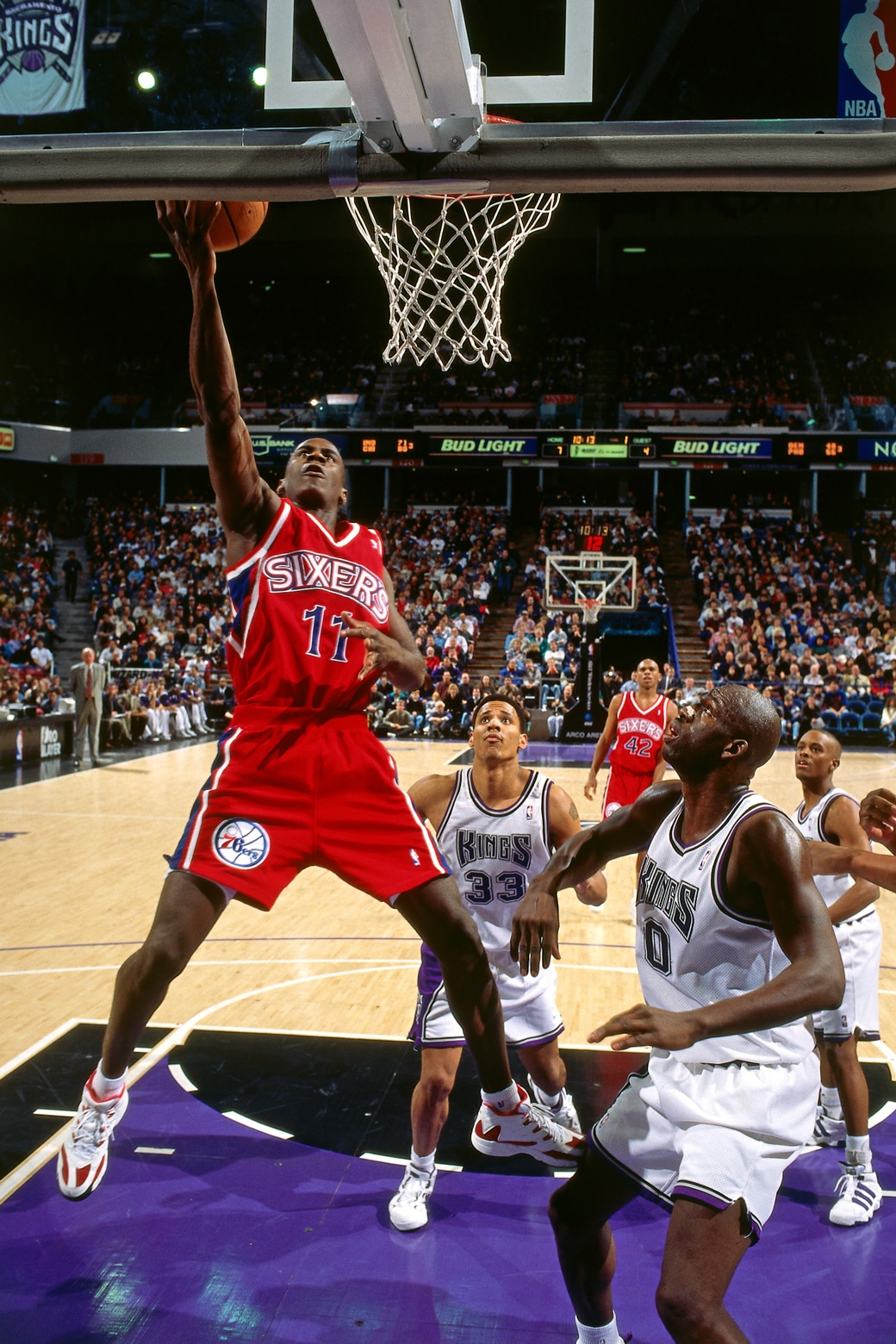
The glory days of ’94 gone and his career over, Maxwell retired and moved to the Charlotte area, played golf and removed himself from any NBA circles, keeping up with close friends but making no overtures to join college or professional coaching staffs. When we speak, he still sounds like he’s ready to get back into the game in some way, though the League has yet to help him gain entry.
“I’m getting my résumé together,” Maxwell says from his home in Houston. The veteran guard is interested in getting into coaching like his buddies Ellie and Cassell, who both spent years in the NBA as assistants. “Hopefully I can start at the bottom of some organization and work my way up.”
Ellie thinks Max can certainly bring something to a team but understands why the opportunity didn’t immediately present itself. “Once you’re out of the League [as a player] you have to keep in contact with people and Vernon didn’t do that. He has a wealth of basketball knowledge and I know he’d be a fantastic coach.”
“Vernon did a lot of winning compared to a lot of guys,” Cassell says. However the reputation of the man who at one time was universally called “Mad Max” for good reason—go search for a video of his fight with Michael Jordan on YouTube—may hinder his opportunities. “Perception is everything in the league,” Cassell says. “Vernon is a great guy, but perception is everything.”
Maxwell agrees. “When it comes to coaching you have to climb that ladder. I don’t know if it’s because of my past. I’m just waiting for that opportunity to happen for me.”
On March 19, 2015, the Rockets celebrated both championship teams and every member was invited back to Houston. “Not-so Mad Max” made an appearance and was once again a Rocket, if only for a day.
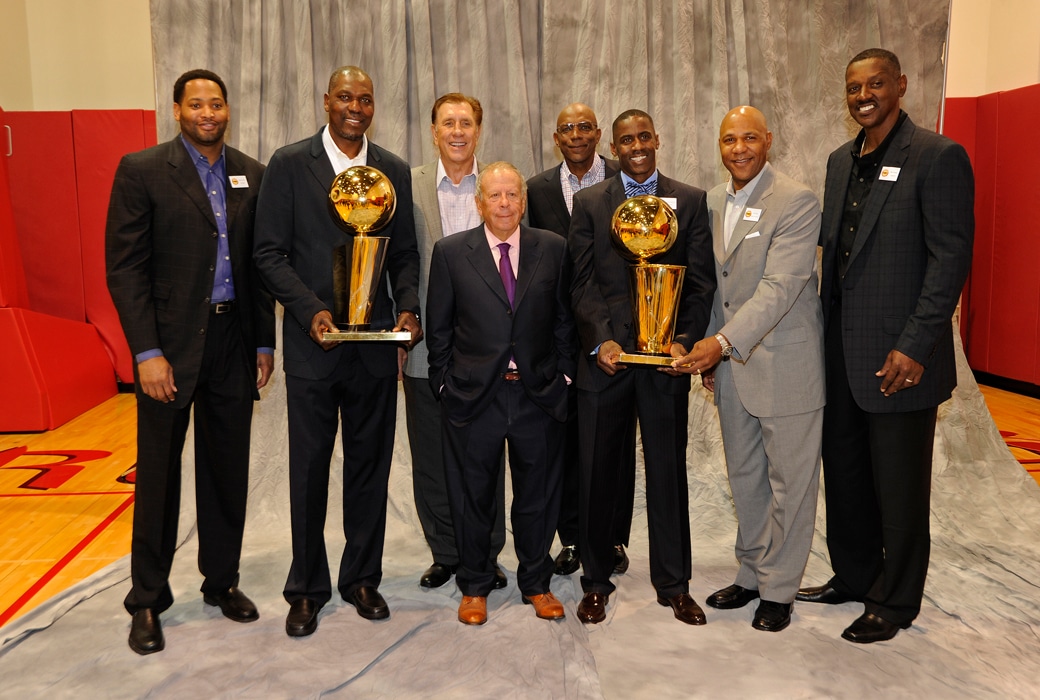
“When [he] came back for the reunion everyone welcomed him with open arms,” Ellie says. “Everybody loves Vernon.”
You can’t be mad at that.
—
Donnell Suggs is a Sports Editor at the Houston Home Journal and a contributor to SLAM. Follow him on Twitter @suggswriter.
Photos via Getty Images.
